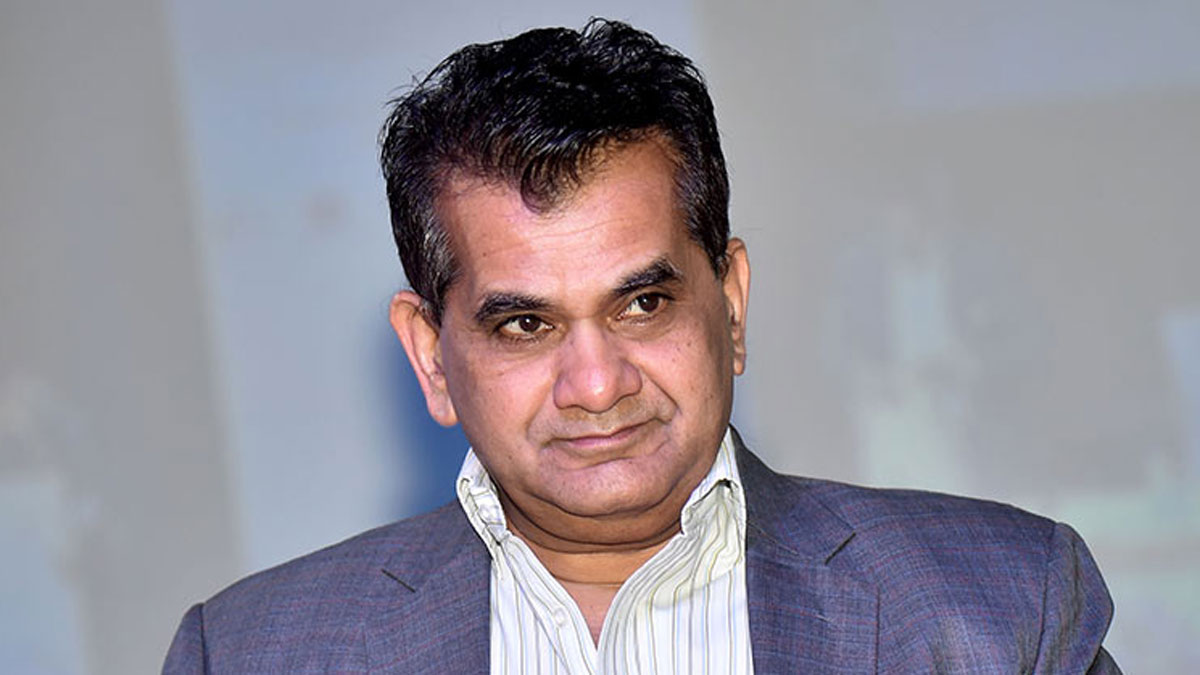This is an audio transcript of the Working It podcast episode: ‘How to network without being inauthentic’
Alison Fragale
Strategic and authentic are not opposites. They can go together. And what I’m hearing in Natasha’s story is I love to run. That’s authentic. And I’m returning from maternity leave. I have to think about re-engaging. And so I’m gonna be strategic in doing that. But again, not in a fake way, doing something I really like.
[MUSIC PLAYING]
Isabel Berwick
Hello and welcome to Working It from the Financial Times. I’m Isabel Berwick.
[MUSIC PLAYING]
Professional networking can be pretty uncomfortable. Approaching senior colleagues or strangers with an agenda is so transparent. And a lot of us find it a bit daunting. In fact, I used to find it so difficult. But I spent a lot of time at drinks events, not networking at all, but hiding in the ladies bathroom. Bonding with colleagues over genuine shared interests is a different story. It’s a great way to make yourself known to people at all levels and quite possibly boost your career as a result. Lots of workplaces, organised sports teams, choirs or other societies to help colleagues bond. How can we use these extracurricular activities to make connections we might not otherwise make? And how can we socialise naturally but strategically with colleagues? To find out, I’m speaking to Alison Fragale, an organisational behaviour professor at the University of North Carolina at Chapel Hill. Alison, hello.
Alison Fragale
Hello.
Isabel Berwick
Alison’s new book, Likeable Badass, is a science-backed guide to winning respect, power and influence. I’m also speaking to Natasha Wood, head of strategy for the FT’s events business FT Live. Natasha, welcome.
Natasha Wood
Hello. Thank you for having me.
Isabel Berwick
Natasha is gonna tell us how sport helped her meet crucial people at a pivotal moment in her career. Let’s get started. Allison, in your book Likeable Badass, you talk about the relationship between power and status. Could you tell us a bit about how you define those terms and what the relationship is between them?
Alison Fragale
So status is how much other people respect and regard us. So it’s a judgement other people make about us. Power is resources we control like money, authority, the ability to reward and punish. And those are both fundamental human needs. We care about them greatly. Life is better with them than without them. And the relationship between them is that status being highly regarded and respected is a prerequisite or a gateway for being able to have other people give us resources, give us power. So what we often see is that having status ends up making it easier for us to get and hold power.
Isabel Berwick
If you have power but you haven’t bothered to achieve status on the way up, is that gonna be tricky for you at the top?
Alison Fragale
Turns out it’s really problematic. So not only is power harder to get without status, if somehow you do, it’s actually really hard to use it effectively. We don’t really like resources being controlled by people we don’t respect and therefore we don’t treat them very well. They’re often the recipients of a lot of mistreatment. Things like having their judgement questioned, being interrupted, having their ideas ignored, you know, even more kind of aggressive behaviours that sort of communicate. I really don’t think you should have this control. And it turns out it’s a really miserable existence.
Isabel Berwick
I can see exactly what you mean, but I’m really interested in how we can grow our status through internal mechanisms that are not about promotion, things like socialising with colleagues or sport. You know what that can do for your standing. And I was gonna bring in Natasha here because you recently participated in a relay race organised by the FT and our parent company Nikkei. Could you tell us about that and why you did it?
Natasha Wood
Yeah, it’s a great question. First of all, I’m a passionate runner, so when the invitation came around to participate in an ekiden, which is a Japanese form of relay race, it naturally spoke to me. But I had recently returned from maternity leave and I was very conscious of my status or lack thereof because I had not been at work for 10 months. And I thought, oh this will be a great opportunity. It’s sponsored by a board member, John Ridding our CEO was very much instrumental in the FT sponsorship of it. And so it was a fairly calculated play to apply for a place because I knew it would help build those connections and build my profile as I look to re-establish some level of status following a career break.
Isabel Berwick
And how do you feel afterwards?
Natasha Wood
Well, it certainly achieved my aims. I made some connections internally at the FT. We continue to go for running sessions at lunchtime. That means that I’m having those conversations that I wouldn’t necessarily be having thanks to that sporting platform.
Isabel Berwick
Alison, how do you rate Natasha’s approach? Is that a status-building activity?
Alison Fragale
I love it. It’s 10 out of 10. So the two things that I’m hearing there that I really emphasise with people is, one, strategic and authentic are not opposites. They can go together. And what I’m hearing in Natasha’s story is I love to run. That’s authentic. And I’m returning from maternity leave, I have to think about re-engaging and so I’m gonna be strategic in doing that. But again, not in a fake way, doing something I really like. That’s one thing. And the second one is just the power of similarity. So I’m a psychologist and we look across all of psychology. The greatest basis of liking and attraction that psychology has ever documented is similarity. This adage birds of a feather flock together, that’s true. So when you have a shared similarity, it is the beginning of a relationship. It’s easy to build a relationship when someone sees themself in you. And most of the similarities that draws together at work don’t have to be about work at all. So anything. Oh, you have three kids. I have three kids. You spell your name with one L, so do I. All kinds of silly things we see in the research lead people to have a sense of connection. And so when you find those things, it’s very powerful.
Isabel Berwick
In workplaces that are increasingly diverse Alison, what kinds of things are similarities? Because I suppose in the olden days, it used to be white men feeling similar to other white men, didn’t it?
Alison Fragale
Well, there’s no doubt that we can draw similarity from things we can easily observe without even opening our mouth. And that’s why I do a lot of work advocating for women. And I say, when you look different than everyone else around you and you don’t do anything about it, then it’s logical that when people look at you, they simply assume that you are different. But between any two people, I guarantee you if you start to chat, you are gonna find a real genuine similarity. And again, the beauty of the research in psychology is that these similarities can be so trivial. You know, you order the same thing at Starbucks. I do. It truly doesn’t matter as soon as someone has that. Wait, that’s me too. You instantly light up. So the task is for everybody, but particularly if you look different than people around you go searching for those points of connection because they will trump anything that is visible. But if they’re not brought to the surface, then people will simply assume difference.
Isabel Berwick
And Natasha I know you find traditional networking slightly icky, we can call it perhaps. What do you think’s different when you socialise or play sport with colleagues?
Natasha Wood
It’s a great leveller, the sporting world activities that we choose to do that aren’t related to our day jobs. Work status goes out of the window and it’s just about engaging on a very, very personal level. Sport is about performance. It’s about testing your own individual limits and endurance, certainly within the running world. And that is an egalitarian world that makes it very easy to connect with people, regardless of whether the CEO or the latest intern. And making those connections that way, rather than I need something you have it for me means that those connections are a much more positive and likely to endure.
Isabel Berwick
Alison, how does that kind of bonding translate to the professional world? Are there tangible professional benefits we can reap from something like sport?
Alison Fragale
Absolutely. People cannot respect you if they don’t know you exist. So if we’re in sport or any other activity that’s outside of work, it gives people a chance to know we exist, to find some similarities with us and to start to like us a bit and to feel familiar. And familiar things are liked more. And then how can you start to add value to their life, not just in the personal domain, but the professional?
So I was thinking about a woman I met. We were just sitting next to each other working at shared tables at a co-working space that we both belonged to. And I didn’t know her and I struck up a short conversation with her, learned a little bit about what she did, and then connected with her on LinkedIn, because that’s what I do. And then no sooner I was back at my desk at home and an email comes through and it’s about a media that was looking for some people to write articles on different topics. And one of the topics was about mindfulness at work, which was her area. So I looked her up on LinkedIn. I had met her only the afternoon prior and I sent her this and I said, This sounds like it’s up your alley. And she wrote, ended up getting selected, wrote the article, and she’s been a great supporter of mine ever since.
And so it was that initial conversation that was just chit chat. But when I learned something about her, I kept my eyes open. I didn’t go out of my way that day to say, how can I make her life better? But when something crossed my desk and I thought of her, it took the extra minute to say, this could help you. And that was a simple thing the day, the day we met and that was years ago. And ever since then, she’s been very loyal to me and looked for opportunities to try to give back to me as well. So that social piece gives you the information. What’s this person about? And then when you’re going through your day, you can find those opportunities to think about how can I add a little bit of value?
Isabel Berwick
So would you say that achieving status is also about amplifying others? I think in your book you talk about, you know, supporting others. How can we best make that work?
Alison Fragale
Well, people respecting us, it’s not a random judgment. It’s based on two things that we pay attention to. How capable are you? Are you good at what you do? If I give you tasks, can you get them done well? And do you care about people other than yourself? Those are the two things that lead us to respect people. And if you can show up as both, hey, I have interesting knowledge, skills, attributes to share and I’m gonna do that for your benefit. That’s what gets you respect. And so what I help people think about is how can you do that in easy ways? There’s a lot of high effort ways you can do that.
But if you’re gonna build status really broadly, you can’t invest in every relationship extremely deeply. But a quick introduction, chit chatting with somebody while you’re taking a break, you know, in a co-working space to I’m gonna forward you an email that has a lot of value to you that opens up a door. Five minutes of your time can be a really big investment or value to that particular person. So that’s what I encourage people to look for is once you have the relationship, how can I add value to it in a way that allows me to show up as unique?
Isabel Berwick
That’s great advice. So how can we network with the right people without looking like we’re just schmoozing or being self-promoting? How can you be strategic as well as being authentic?
Alison Fragale
The authentic piece comes with meet lots of people, talk to lots of people. You never know where the next great, I call them other promoter or sponsor the person who’s really gonna advocate for you and build your status. You never know where that person is gonna come from. There’s a woman, Rachel Sheerin, I talk about her a lot every time I give a presentation. I wrote about her in the book. I met her in an airport bar, just chatting to the person next to me and turns out we are in the same line of work. And she has opened a tremendous amount of doors for me. So I would say meet people broadly.
Switch from this idea of networking to what Heidi Roizen, who’s a well-known venture capitalist and the subject of a oft-taught business school case. She said it’s not networking, it’s a relationship-driven life. And I think that’s right. I’m building relationships with people, and that’s authentic. And then looking for what do you care about so that I can think about as things cross my desk, the easy ways to add value to you. And that’s the kind of stuff that I’m always trying to think about when I meet people is, OK, who are you and how could I think about something that would make your life better?
One simple one that I offer to everybody is the idea of making an introduction. And when I make that introduction, I’m making two people’s lives better, not just one, if it’s a mutual benefit. And it’s a very easy thing to do. And a lot of those introductions have delivered a lot of value to people and in turn they feel very loyal to me for making them. So that’s one of the things we can start to think about is just meet people, listen to people, and then think about what can I do to add a little bit of value to their life. It’s very authentic, but it’s also strategic because it ends up being reciprocated.
Isabel Berwick
Do you think, Alison, that socialising with our colleagues has become more valuable since the pandemic? Now we’re in a hybrid world. Has that changed?
Alison Fragale
Well, I think it’s changed a little bit, but I was . . . we’ve had smartphones for a while. We’ve been doing things behind screens for a very long time. And so I see it not as like a cliff in the evolution of our social lives, but more just like a continuation of using technology more and more and more. And I think that you can build relationships behind screens, you can build relationships face to face.
I think the bigger impediment is not the technology or the medium you’re in, but more the mentality that you have, which is I want to strike a personal connection, I want to meet people, I want to add value to people. And if you start thinking about life that way, you can find ways to do it, even if you’re, you know, fully asynchronous, even if you’re just doing it by email, you can find ways to be able to add value. So I think it’s shift the mentality and not worry so much about what mode we are in because we can build relationships throughout.
Isabel Berwick
So Natasha, you’re an events expert. How can we best approach, you know, perhaps a real-life event? Because we don’t go to that many, but when we do, they’re quite special.
Natasha Wood
It’s really interesting as I was listening to Allison talk, I was thinking to my day job leading strategy for FT Live, the FT’s events business. And the feedback we so often get from our attendees is, I want to be able to network better. What tools do you have available? What app can I use to connect with other people? And the apps are great, but if we’re at an in-person event, the most valuable connections, the ones that are going to last you into the future, are actually the serendipitous conversations that you’re having whilst you’re waiting for a coffee, whoever’s picking up your badge.
So taking Alison’s advice to heart when you’re at a live event, introduce yourself. The person sitting next to you is probably feeling just as uncomfortable as you are in that environment. So be the one. Find out, do they spell Annabelle with two Ls, but you only spell it with one? Have they run a marathon? Believe me, it’s the age-old joke. If they have, you will know. They’ll tell you within five seconds of starting the conversation. But it’s a great way of knocking down those walls and starting to build relationships and who knows where they can go.
Isabel Berwick
That’s great advice. Alison, What would be your parting advice to listeners?
Alison Fragale
Just be yourself in the most strategic way possible. So start talking about what you love and what you do and have the mentality of How can I make others lives better? If you do that, then you’re gonna do 90% of the work that it takes to build sense.
Isabel Berwick
And Natasha, what’s your advice?
Natasha Wood
Find your passion and pursue it. Coming back to sport, there are so many connections that you can make. It’s a great way to build status because you’re exhibiting all of those leadership skills just by participating the resilience, the teamwork. So double down on your passions. And it’s amazing where those connections will take you.
Isabel Berwick
Thank you.
Natasha Wood
Thank you for having me.
Isabel Berwick
Alison, thanks so much.
Alison Fragale
Thank you for having me.
[MUSIC PLAYING]
Isabel Berwick
This episode of Working It was produced by Mischa Frankl-Duval and mixed by Simon Panayi. The executive producer is Manuela Saragosa, and Cheryl Brumley is the FT’s global head of Audio. Thanks for listening.
[MUSIC PLAYING]






































































































































































You must be logged in to post a comment Login